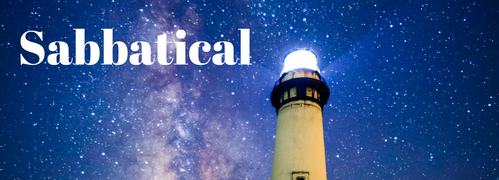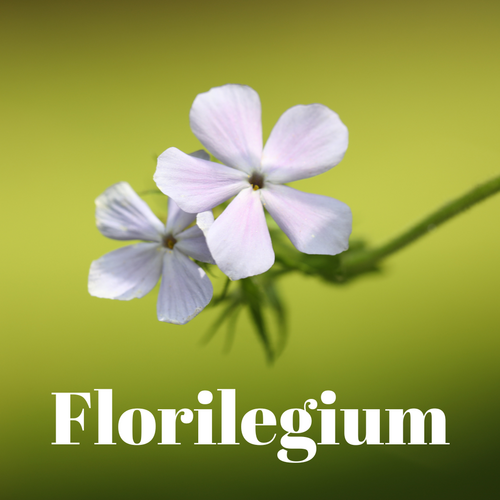

Daily Primer — July 26, North Atlantic
Each day you will be given:
A Florilegium entry
A Daily Prayer
and a Night Prayer.
A Florilegium entry
A Daily Prayer
and a Night Prayer.

As a result, both sea and wilderness became prominent archetypes in Puritan mythic life, teaching them caution as well as delight. Each of these nature archetypes had a double meaning. The sea represented the ocean of God’s love as well as the threat of God’s anger (even the chaos of demonic power). The wilderness was a place of romance where Yahweh had led the children of Israel into a deeper intimacy (Hosea 2: 14). But it was also a place of terror, full of serpents and scorpions, where Israel had failed God again and again. In each case, the archetype evoked a holy desire while simultaneously visualizing the frenzy of disordered longing.
The tossing waves and furious winds of the North Atlantic—the dense forest and frenzied dancing of dark figures in the wilderness of the interior—all these spoke of the dangers of uncontrolled desire, the wickedness of the human heart. A God of providential care thus found it necessary to use the afflictions occasioned by shipwreck, windstorm, and Indian attack to channel the reckless craving of the Puritans for less-than-holy things. In the winter of 1675, for example, Mary Rowlandson experienced this purging when she and her children were kidnapped by Indians and forced into the wilderness. She came to understand her captivity as a gift, however, teaching her “the more to acknowledge God’s hand” in her life, directing her desire to God alone.
==============
From what has been said, it is clear that there is and can be no special planned technique for discovering and awakening one's inner self, because the inner self is, first of all, a spontaneity that is nothing if not free. . .
The inner self is as secret as God and, like Him, it evades every concept that tries to seize hold of it with full possession. It is a life that cannot be held and studied as object, because it is not “a thing.” It is not reached and coaxed forth from hiding by any process under the sun, including meditation. All that we can do with any spiritual discipline is produce within ourselves something of the silence, the humility, the detachment, the purity of heart, and the indifference which are required if the inner self is to make some shy, unpredictable manifestation of his presence.
Last Spring I was running early one morning on a road through rural Georgia. It wasn’t even a paved road . . . a path might be a better description. I came around a bend in the pathway and there it stood — a beautiful white-tailed doe. I don’t know who was more surprised, her or me. I stood in motionless admiration. She stood and warily looked me over. We were no more than a few yards apart. Then I had a stupid idea. I thought, “I bet I can get just a little closer,” and I edged toward her and with that — Poof! She was gone! One agile leap into the hedge and then all I could make of her was the sound of her retreat through the woods.
I have thought of that moment several times in the last year. It was a beautiful moment . . . but it was also a metaphor for my life with God. Sometimes I’m trucking along, minding my own business when I am confronted with the surprise of a holy moment; a beautiful and rare moment. Now, in that moment: A wise man would simply marvel at and savor the benefaction. A wise man would give thanks for a grace granted due to no effort of his own. A wise man would not try to analyze it too much or try to capture it or attempt to understand how to re-create it on demand. Too often I am anything but wise and I start trying to “capture” the moment or tease out the meaning of the experience, and too often I have the predictable results of losing the moment and squandering the gift in my effort to make it my pet instead of marveling at its wild, nimble beauty.
The Psalmist wisely prays for “wisdom in my secret heart,” and “truth in my inward being.” This is the prayer of a contemplative. It is the prayer that when we turn our gaze inward we are not engaged in navel-gazing. Rather we are looking for God who abides in us and who, to borrow Merton’s phrase, will sometimes make, “some shy, unpredictable manifestation of his presence.”
I pray that we all keep having those moments of encounter with the Holy. I pray that when we have them we will have cultivated “within ourselves something of the silence, the humility, the detachment, the purity of heart, and the indifference which are required if the inner self is to make some shy, unpredictable manifestation of his presence.”
The tossing waves and furious winds of the North Atlantic—the dense forest and frenzied dancing of dark figures in the wilderness of the interior—all these spoke of the dangers of uncontrolled desire, the wickedness of the human heart. A God of providential care thus found it necessary to use the afflictions occasioned by shipwreck, windstorm, and Indian attack to channel the reckless craving of the Puritans for less-than-holy things. In the winter of 1675, for example, Mary Rowlandson experienced this purging when she and her children were kidnapped by Indians and forced into the wilderness. She came to understand her captivity as a gift, however, teaching her “the more to acknowledge God’s hand” in her life, directing her desire to God alone.
==============
From what has been said, it is clear that there is and can be no special planned technique for discovering and awakening one's inner self, because the inner self is, first of all, a spontaneity that is nothing if not free. . .
The inner self is as secret as God and, like Him, it evades every concept that tries to seize hold of it with full possession. It is a life that cannot be held and studied as object, because it is not “a thing.” It is not reached and coaxed forth from hiding by any process under the sun, including meditation. All that we can do with any spiritual discipline is produce within ourselves something of the silence, the humility, the detachment, the purity of heart, and the indifference which are required if the inner self is to make some shy, unpredictable manifestation of his presence.
Last Spring I was running early one morning on a road through rural Georgia. It wasn’t even a paved road . . . a path might be a better description. I came around a bend in the pathway and there it stood — a beautiful white-tailed doe. I don’t know who was more surprised, her or me. I stood in motionless admiration. She stood and warily looked me over. We were no more than a few yards apart. Then I had a stupid idea. I thought, “I bet I can get just a little closer,” and I edged toward her and with that — Poof! She was gone! One agile leap into the hedge and then all I could make of her was the sound of her retreat through the woods.
I have thought of that moment several times in the last year. It was a beautiful moment . . . but it was also a metaphor for my life with God. Sometimes I’m trucking along, minding my own business when I am confronted with the surprise of a holy moment; a beautiful and rare moment. Now, in that moment: A wise man would simply marvel at and savor the benefaction. A wise man would give thanks for a grace granted due to no effort of his own. A wise man would not try to analyze it too much or try to capture it or attempt to understand how to re-create it on demand. Too often I am anything but wise and I start trying to “capture” the moment or tease out the meaning of the experience, and too often I have the predictable results of losing the moment and squandering the gift in my effort to make it my pet instead of marveling at its wild, nimble beauty.
The Psalmist wisely prays for “wisdom in my secret heart,” and “truth in my inward being.” This is the prayer of a contemplative. It is the prayer that when we turn our gaze inward we are not engaged in navel-gazing. Rather we are looking for God who abides in us and who, to borrow Merton’s phrase, will sometimes make, “some shy, unpredictable manifestation of his presence.”
I pray that we all keep having those moments of encounter with the Holy. I pray that when we have them we will have cultivated “within ourselves something of the silence, the humility, the detachment, the purity of heart, and the indifference which are required if the inner self is to make some shy, unpredictable manifestation of his presence.”
Belden Lane, Ravished by Desire: The Surprising Legacy of Reformed Spirituality, p. 137.
And then:
A Lenten devotion written in 2011 which begins with a quote from: Thomas Merton. The Inner Experience, pp. 6-7.
And then:
A Lenten devotion written in 2011 which begins with a quote from: Thomas Merton. The Inner Experience, pp. 6-7.
Florilegium is the Medieval Latin word for bouquet, or more literally flowers (flos, flor-) which are gathered (legere). The word florilegium was used to refer to a compilation of writings, often religious or philosophical. These florilegium are literary flowers—beautiful words/prayers/thoughts I have gathered. During my sabbatical they will give me something to ponder each day. — PHL.

Lord, like the deer who pants for water, so my soul yearns for you. Sustain me this day. Help me to complete every good thing I begin. When, in moments of quiet repose, I encounter your wild, feral, and beautiful Spirit, give me wisdom enough to know that all I need to do is enjoy the moment. Amen.
Psalm 42:1. Liturgy of the Hours — PHL.

Thanks to Thee, God,
Who brought me from yesterday
To the beginning of today,
Everlasting joy
To earn for my soul
with good intent.
And for every gift of peace
Thou bestowed on me,
My thoughts, my words,
My deeds, my desires
I dedicate to Thee,
I pray Thee,
To keep me from offense,
And to shield me tonight,
For the sake of Thy wounds
With Thine offering of grace. Amen.
Who brought me from yesterday
To the beginning of today,
Everlasting joy
To earn for my soul
with good intent.
And for every gift of peace
Thou bestowed on me,
My thoughts, my words,
My deeds, my desires
I dedicate to Thee,
I pray Thee,
To keep me from offense,
And to shield me tonight,
For the sake of Thy wounds
With Thine offering of grace. Amen.
Carmina Gadelica: Hymns & Incantations collected in the Highlands and Islands of Scotland, Alexander Carmichael. - #42.
